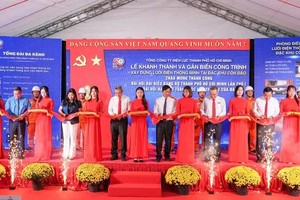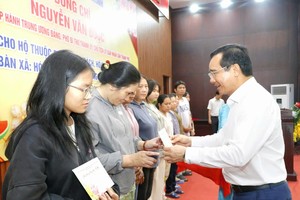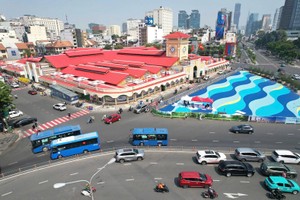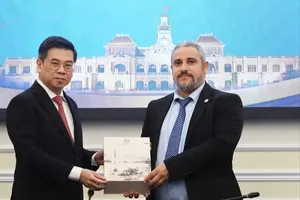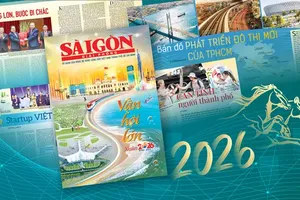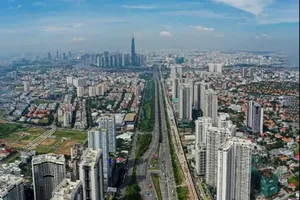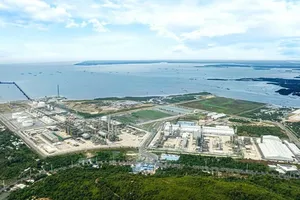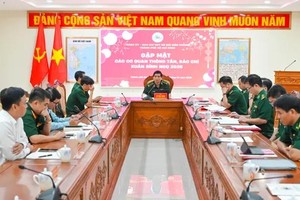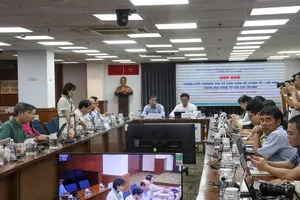
For the past 5 years, HCMC has vigorously implemented reforms across institutions, administrative procedures, organizational structures, cadre development, and digital governance.
A standout achievement has been the issuance of crucial resolutions concerning the restructuring of administrative units, staffing regulations, and the implementation of lump-sum operational funding.
HCMC has positioned itself as a pioneer in developing e-government and a smart city. The city has established a Digital Transformation Center as well as an Industry 4.0 Center, and it has completed the comprehensive systematization of all legal normative documents issued by the People’s Councils and People’s Committees at every level during the 2019-2023 period.
Among the key milestones was the completion and successful launch of the city’s Digital Citizen Application, alongside the deployment of a sophisticated feedback collection system on social media together with a centralized complaint and denunciation management system.
The transparent announcement and publication of administrative procedures, coupled with their continuous review and simplification, the development of internal processes, and enhanced inter-agency coordination, have markedly improved the quality of service delivery.
The city has also built and now operates a comprehensive Public Service Portal and an electronic one-stop-shop information system, both of which are fully integrated with the National Public Service Portal, and has widely implemented paperless meeting rooms.
Furthermore, the city has demonstrated firm resolve in executing its smart city development project, issuing a formal e-Government Architecture that establishes a master plan for the synchronized and interconnected deployment of information technology.
Despite these accomplishments, administrative reform efforts in HCMC still face persistent challenges. In the domain of drafting legal documents, some agencies suffer from a shortage of specialized personnel, resulting in documents of subpar quality.
The monitoring of law enforcement remains ineffective, hampered by a lack of resources and weak coordination mechanisms. The proportion of fully online public services remains low, and the system for receiving and processing online administrative applications is not yet uniformly synchronized.
Therefore, looking ahead, HCMC will continue to refine its system of legal normative documents, institutionalizing the directives of the Central Government and the resolutions of the City Party Committee, with a strong emphasis on regulations that promote decentralization and delegation of authority between different levels of government.
To enhance the leadership, direction, and oversight of administrative reform, the city has proposed four key groups of solutions.
1. As to institution and policies:
- Promptly issue documents defining the functions, tasks, and organizational structures of administrative units;
- Advocate for robust decentralization and delegation of authority to local levels to foster greater proactivity and autonomy in work execution.
2. With regard to resources:
- Strengthen the application of information technology and deploy shared software solutions to reduce processing times for public services;
- Innovate the content and methodology of official training to align with specific job requirements and link theoretical training with practical application;
- Implement a system of substantive evaluation for officials to motivate a leaner, more effective workforce.
3. Regarding finance:
- Accelerate financial management reform with a focus on greater autonomy;
- Mobilize appropriate and transparent social resources to supplement state funding;
- Prioritize budget allocations for administrative reform initiatives, particularly for the application of information technology in building the e-government infrastructure.
4. Concerning implementation and organization:
- Promptly issue plans for implementing legal documents concerning the organizational apparatus;
- Continuously review and propose amendments to outdated or inadequate regulations;
- Strengthen the inspection and evaluation of staff utilization and restructure the cadre of officials as needed.
Crucially, the HCMC People’s Committee asserts that the most pivotal condition for ensuring the effectiveness of administrative reform is the political determination and accountability of agency heads.
Therefore, it is imperative to concretize the policy of using reform results as a primary criterion for the evaluation, transfer, appointment, and assignment of officials.
Concurrently, regular inspections and audits must be maintained to promptly rectify shortcomings, refine the system based on real-world feedback, and guarantee that the reform process is supported by sufficient financial and human resources.
